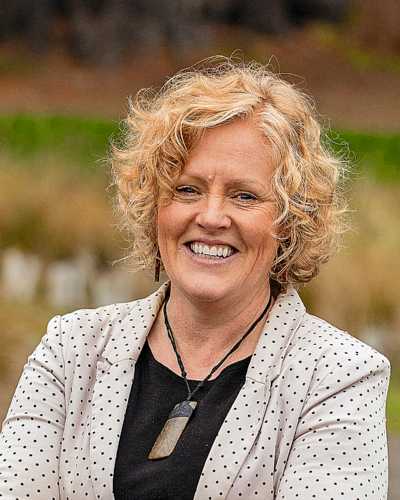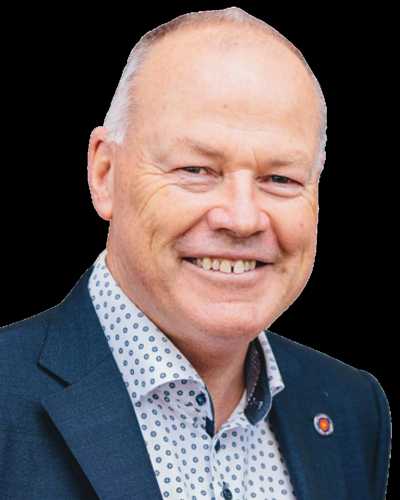Introduction: The recruitment and retention of allied health professionals (AHPs) in rural and remote locations is a worldwide challenge. However, there has been limited investment in strategies specific to AHPs compared with their medicine and nursing counterparts. This is in part due to an absence of research seeking to understand the unique challenges and opportunities that exist for the allied health rural workforce that can underpin strategies and actions. To address this gap, we have recently undertaken research to discover what AHPs identify as the attractive aspects of living and working rurally.
Methods: An interpretive descriptive methodology1 was utilised to develop practical, actionable recommendations to support line managers, recruiters, employing organisations, tertiary providers, professional associations and registering bodies as they work to better resource rural health systems. Ethics approval was obtained via Auckland University of Technology: reference number 18/424
Results: This e-poster offers 20 recommendations built from the narratives of rural AHPs and foreground by the recent COVID and Health System Reform context in Aotearoa. These recommendations link to the themes that were developed from the data; Connection and Belonging, Safe and Supported Practice, Creating Roles People What to Come For, and the interweaving theme of Fit.
Table 1. Recommendations
| Themes and Subthemes | Recommendation | Audience |
|---|---|---|
|
Connection & Belonging: Feeling Cared About |
Networking and knowing your community Become a resource about your communities for your people |
Line Managers |
|
Connection & Belonging: Feeling Cared About |
Finding balance, and role modelling boundaries Creating micro-moments that build a sense of safety and belonging Lean into flexibility and transparency instead of consistency and equality of rule application Support skills building for navigating work and personal community relationships |
Line Managers |
|
Safe & Supported Practice: Relationship with Leader(ship) Connection & Belonging: Feeling Cared About |
Time spent walking in their shoes |
Line Managers |
|
Creating Roles People Want to Come For: Freedom & Scope |
Building trust benefits everyone Assume good intent from the outset Promote reciprocal relationships (tuakana-teina†) |
Line Managers |
|
Safe & Supported Practice: Relationship with Leader(ship) Connection & Belonging: Feeling Cared About Creating Roles People Want to Come For: Growth Pathways AND Freedom & Scope |
Enhancing management and leadership attributes Invest in ongoing leadership development |
Line Managers |
| Fit |
The Reasonableness Test Check for biases and other habits of thinking |
Line Managers |
| Safe & Supported Practice: Valuing Learning |
Apportioning resource Matching investment to each of the workforces equitably and with population benefits in mind |
Line Managers |
| Safe & Supported Practice: Valuing Learning |
Demonstrating AHPs' learning needs are valued Create, brand, and promote learning with each workforce in mind |
Organisations |
|
Safe & Supported Practice: Valuing Learning Connection & Belonging: Feeling Cared About Creating Roles People Want to Come For: Growth Pathways |
Fit for purpose policies and procedures Visible, transparent, accessible, and fair |
Organisations |
|
Safe & Supported Practice: Relationship with Leader(ship) Connection & Belonging: Feeling Cared About |
Are you an ally for rural and remote AHPs? |
Organisations |
|
Connection & Belonging Safe & Supported Practice |
Who is missing from this process? Assumptions limit progress, and affect quality |
Organisations |
| Fit |
Are they safe? aka The Reasonableness Test (see above) |
Organisations |
| Connection & Belonging: Feeling Cared About |
The human impact Impacts on identity, and wellbeing |
Organisations |
|
Connection & Belonging: Feeling Cared About |
A window into the culture of an organisation Treat every candidate as though they will solve all of the organisation's recruitment needs |
Recruiters |
|
Connection & Belonging: Feeling Cared About Creating Roles people want to come for: Recruitment Experiences |
Knowing your audience Learn about all the professions who come under the Allied Health, Scientific & Technical umbrella; what they do, who they are, what matters to them |
Recruiters |
|
Connection & Belonging: Feeling Cared About Creating Roles People Want to Come For: Recruitment Experiences Connection & Belonging: Personal Relationships |
Creating opportunities to connect Line up start dates for multiple new hires |
Recruiters |
| Creating Roles people want to come for: Lifespan of Roles |
Identifying patterns Collect, analyse, and make visible workforce data in meaningful ways |
Recruiters |
|
Connection & Belonging: Feeling Cared About Creating Roles people want to come for: Growth Pathways AND Freedom and Scope |
Recognise and Endorse a Rural Scope of Practice Establish mechanisms to recognise rural practice as an extended/specialist scope of practice and a pathway for endorsement |
Professional Associations and Regulatory Authorities |
| Creating Roles people want to come for: Growth Pathways |
Is city-based training the only way? Develop ways to connect knowledge, skills and qualifications with learners who are rurally located |
Tertiary Education Providers |
| Safe & Supported Practice: Valuing Learning |
Rural Generalism Develop rural generalist pathways for individual professions and transdisciplinary |
Tertiary Education Providers |
†Tuakana-teina is a concept from te ao Māori and refers to the relationship between an older (tuakana) person and a younger (teina) person. Within teaching and learning contexts, this can take a variety of forms such as peer to peer, younger to older, older to younger, or able/expert to less able/expert and is a reciprocal learning relationship2.
Discussion: These recommendations demonstrate a multi-faceted approach is required to secure the workforce already in place, attract new staff and build the workforce of the future, enabling rural people to grow up well, live well and age well in rural spaces.



